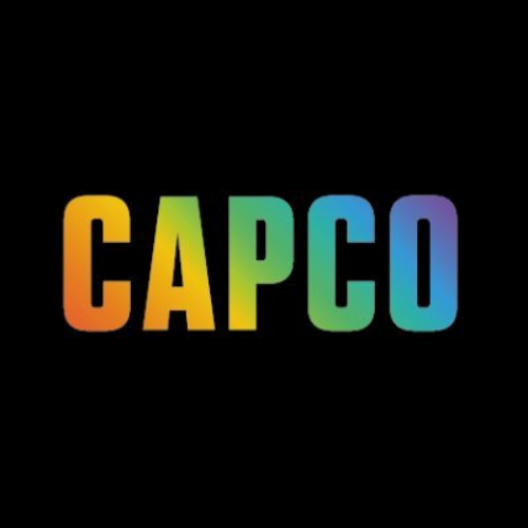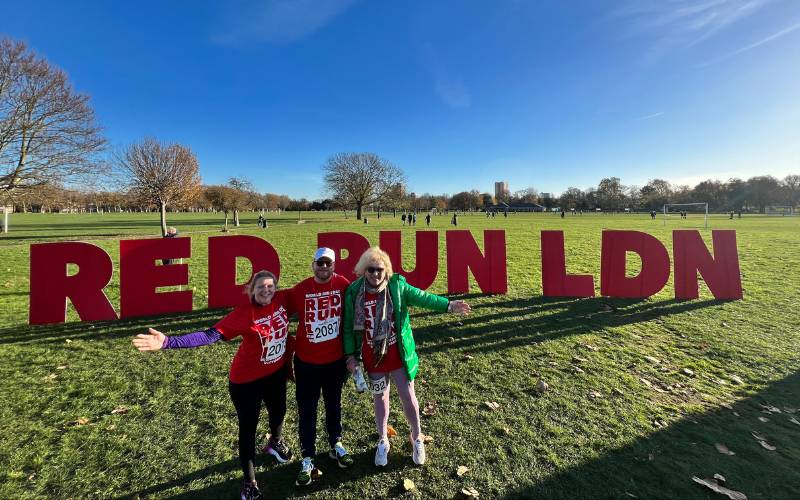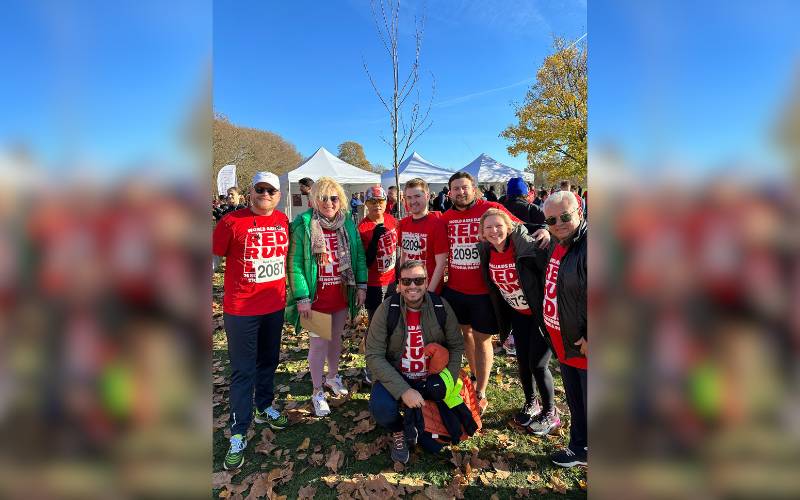
Uniting for Change: Wipro and Capco's Impactful Collaboration on World AIDS Day
Interviews
Julien Brain (he/him), Director, Global AWS Programs & Global LGBTQ+ Charter at Wipro, spoke to myGwork about the company’s recent collaboration with Capco at the Red Run LDN in support of HIV charities. Discussing the common misconceptions that still exist concerning HIV, Julien also described what World AIDS Day means to him, and why it’s important to keep sharing educational resources about these topics.

Pride @ Capco have been focused on working with our parent company Wipro’s LGBTQ+ Charter and, for the second time this year, have joined forces to raise awareness and money to support a great cause.
This time around, we swapped the colours of the Pride rainbow, for red shoelaces and t-shirts to race in the Red Run 2023, along with Pride@Capco's charity Partner Positive East
What does World AIDS Day mean to you? Why is it important to you?
World AIDS Day acts as a significant reminder of the ongoing global effort to raise awareness about HIV/AIDS, support those affected, and work towards ending the epidemic. It is crucial as it promotes understanding, reduces stigma, and encourages actions to prevent new infections.
By disseminating accurate information, we can dispel myths and misconceptions surrounding HIV/AIDS, fostering a more compassionate and informed society. World AIDS Day prompts a global conversation, encouraging governments, organizations, and individuals to recommit to the fight against the virus.
In essence, World AIDS Day is a call to action and a reminder that our collective responsibility extends beyond borders and backgrounds. It is an opportunity to stand in solidarity with those affected by HIV/AIDS, acknowledging their resilience, and pushing for a world where the impact of this virus is minimized, and eventually, eliminated.
What are some suggestions of ways organizations can mark World AIDS Day?
Organizations can mark World AIDS Day by hosting educational events, organizing fundraisers for HIV/AIDS research, and promoting awareness campaigns through social media. Additionally, displaying red ribbons, collaborating with healthcare professionals, and sharing personal stories can contribute to raising awareness and support.
In London, the yearly World AIDS Day RED RUN LDN, organized since 2009 by East London's HIV charity Positive East, is a great example of a charity-led event with a fun run and walk (5 km / 10 km options), creating a sense of community while fundraising for 30 HIV charities. It plays a critical role in educating participants through exhibits and showcasing partner non-profits.
What are some myths and misconceptions around HIV that you wish everyone knew?
1. One common misconception is that HIV can be transmitted through casual contact like hugging or shaking hands. It is crucial to understand that HIV is primarily spread through unprotected sex, sharing of needles, or from an infected mother to her child during childbirth or breastfeeding, when a person has a detectable viral load.
2. PrEP, or Pre-Exposure Prophylaxis, doesn't make someone undetectable. It's a preventive measure for those who are HIV-negative. Conversely, being undetectable is a goal for those already living with HIV to maintain their health and reduce the risk of transmitting the virus to others. PrEP is a preventive measure where individuals take medication regularly to reduce the risk of acquiring HIV. It works by preventing the virus from establishing a permanent infection if exposure occurs. When someone with HIV adheres to their prescribed medication and achieves an undetectable viral load, it means that the amount of HIV in their blood is so low that it cannot be detected by standard tests. This does not mean the virus is completely eradicated, but it reduces the risk of transmission to a negligible level.
3. Dispelling these myths helps combat stigma and encourages accurate information. Merlí, a Catalan TV show (available to stream on Netflix), contributes to dispelling bias against HIV by portraying characters living with the virus in a humanizing and realistic way. Through storytelling, it challenges stereotypes and misconceptions, fostering empathy and understanding among viewers. The show highlights that individuals with HIV lead diverse lives, face unique challenges, and deserve the same respect and support as anyone else. Ultimately, by depicting these narratives, "Merlí" can play a role in breaking down stigma and promoting a more inclusive and informed perspective on HIV.

What does allyship look like to you? What do you want to see from allies in supporting people living with HIV?
Allyship involves actively supporting and advocating for people living with HIV. I’d like to see allies promoting awareness, challenging stigmas, and fostering environments where individuals feel comfortable discussing HIV openly. This also includes understanding the importance of safe practices, encouraging regular testing, and supporting policies that promote inclusivity and equal access to healthcare. Organizing a fundraiser, sharing / displaying educational materials in your organization also helps inform those around you. Last, but not least, volunteering with a local charity can help allies have a meaningful impact.
Tell us how you (or your organization) will be marking World AIDS Day or have done in a previous year.
We are very proud to continue our support of Positive Est and the Red Run – it’s now our 5th year participating, but the first in our associations doing it together. There’s power in showing up as a force for good.
Additionally, we will be sharing a series of educational resources for our colleagues globally in an internal blog post, including:
- UNAIDS “leading the global effort to end AIDS as a public health threat by 2030 as part of the Sustainable Development Goals”
- The UK’s National AIDS Trust, working “to stop HIV from standing in the way of health, dignity and equality, and to end new HIV transmissions”
- Elton John AIDS Foundation, aiming to “be a powerful force in ending the AIDS epidemic”
- Welcome Collection’s thousands of public health posters, from 100 countries and 95 languages
- World AIDS Day 2023 webinar by myGwork
More specifically in our London office, we will be putting up some educational posters from the National AIDS Trust around the office, while running a Red Ribbon fundraiser – Donations welcome here. All proceeds will go to National AIDS Trust, Registered Charity No. 297977.

